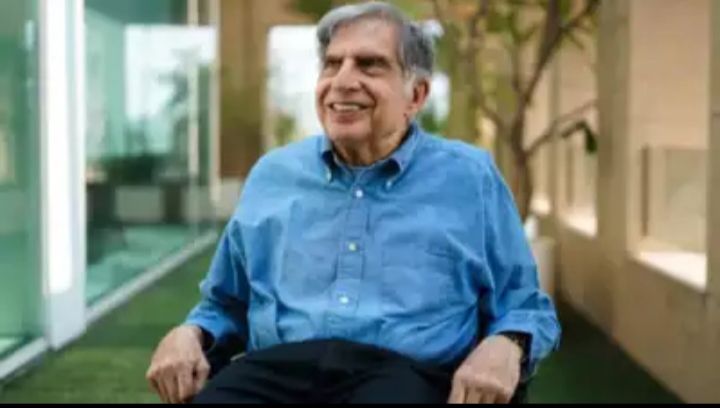
Ratan Tata: A Visionary Leader and Philanthropist
Ratan Tata(Ratan Naval Tata)
(1937 – 2024), born on December 28, 1937, is one of India’s most iconic and respected business leaders. A member of the prominent Tata family, he led Tata Group, India’s largest conglomerate, as the Chairman from 1991 until his retirement in 2012. Even after stepping down, he continues to serve as Chairman Emeritus of Tata Sons, the holding company of the Tata Group, and remains deeply involved in philanthropic and entrepreneurial initiatives.
Early Life and Education
Ratan Tata was born into the influential Tata family, known for their deep roots in Indian industry. He is the great-grandson of Jamsetji Tata, the founder of the Tata Group. Ratan Tata’s parents, Naval Tata and Sooni Tata, separated when he was just 10 years old. Raised by his grandmother, Lady Navajbai Tata, Ratan had a strong moral upbringing.
He completed his early education at Campion School in Mumbai and later pursued higher education at Cornell University, earning a degree in architecture. He also completed an advanced management program from Harvard Business School in 1975.
Career and Leadership at Tata Group
Career and Leadership at Tata Group
Ratan Tata joined the Tata Group in 1961, beginning his career at Tata Steel, where he worked on the shop floor, handling difficult tasks alongside blue-collar workers. His leadership qualities became evident early on, and he steadily rose through the ranks of the organization.
In 1991, Ratan Tata succeeded J.R.D. Tata as Chairman of Tata Sons. Under his leadership, the Tata Group transformed into a global enterprise. He spearheaded the acquisition of major international brands, including Tetley (UK), Corus (UK), and the iconic automotive brand Jaguar Land Rover. These bold moves made Tata Group a global name, contributing significantly to India’s reputation on the world stage.
Ratan Tata is also credited with launching the Tata Nano, the world’s most affordable car, aimed at providing accessible transportation to millions of Indians. Though it faced challenges in the market, the project symbolized Tata’s ambition to create products that could serve the masses.
Philanthropy and Social Contributions
Philanthropy and Social Contributions
Ratan Tata has always been deeply committed to philanthropy, following in the footsteps of his predecessors in the Tata family. More than 60% of Tata Sons is owned by charitable trusts, which support education, healthcare, rural development, and art and culture in India. Ratan Tata himself has supported numerous causes, from cancer research and child health to clean energy initiatives and rural entrepreneurship.
After stepping down as chairman, he has focused even more on charitable and social ventures. One of his notable contributions was his involvement in supporting startup culture in India. Through his personal investments and mentorship, he has helped nurture and guide several young entrepreneurs.
Awards and Recognition
Awards and Recognition
Ratan Tata’s contributions have been widely recognized, both in India and internationally. He has been honored with the Padma Bhushan in 2000 and the Padma Vibhushan in 2008, two of India’s highest civilian awards. He also received several honorary doctorates from prestigious universities across the globe.
Legacy
Ratan Tata’s leadership is often characterized by humility, integrity, and a deep sense of responsibility toward society. His vision of ethical business practices, global expansion, and social welfare has made a lasting impact on India’s corporate landscape. Beyond his business acumen, it is his philanthropic initiatives and desire to improve the lives of millions that truly define his legacy.
In every way, Ratan Tata exemplifies a blend of visionary leadership and a commitment to the greater good, making him one of the most respected figures in India and across the world.
Ratan Tata is a name that embodies visionary leadership, innovation, and a deep commitment to the betterment of society. A man of humility and integrity, Ratan Tata has transformed the Tata Group into a global powerhouse while maintaining the core values of ethical business practices and philanthropy. From expanding India’s global business footprint to steering the country through critical moments like the COVID-19 pandemic and the 2008 Mumbai attacks, his contributions have left an indelible mark on India’s economy and society.
Today, we say goodbye to a true







You can definitely see your expertise in the work you write. The world hopes for more passionate writers like you who are not afraid to mention how they believe. At all times go after your heart. “Man is the measure of all things.” by Protagoras.
What i do not realize is in reality how you are not really much more neatly-preferred than you might be now. You’re very intelligent. You realize therefore significantly when it comes to this subject, made me for my part consider it from numerous various angles. Its like men and women aren’t interested until it’s something to do with Lady gaga! Your personal stuffs outstanding. All the time handle it up!
I haven’t checked in here for some time as I thought it was getting boring, but the last several posts are great quality so I guess I will add you back to my everyday bloglist. You deserve it my friend 🙂
Thanks for sharing excellent informations. Your site is so cool. I’m impressed by the details that you have on this web site. It reveals how nicely you understand this subject. Bookmarked this web page, will come back for extra articles. You, my friend, ROCK! I found simply the info I already searched everywhere and simply could not come across. What a perfect website.
Enjoyed looking through this, very good stuff, thankyou.
WONDERFUL Post.thanks for share..extra wait .. …
The next time I read a blog, I hope that it doesnt disappoint me as much as this one. I mean, I know it was my choice to read, but I actually thought youd have something interesting to say. All I hear is a bunch of whining about something that you could fix if you werent too busy looking for attention.
Hello there! I know this is somewhat off topic but I was wondering which blog platform are you using for this site? I’m getting fed up of WordPress because I’ve had issues with hackers and I’m looking at options for another platform. I would be fantastic if you could point me in the direction of a good platform.
It?¦s really a nice and helpful piece of information. I?¦m satisfied that you shared this helpful info with us. Please stay us informed like this. Thanks for sharing.
I am impressed with this web site, rattling I am a fan.
Hello, you used to write wonderful, but the last few posts have been kinda boring?K I miss your super writings. Past few posts are just a bit out of track! come on!
Great blog here! Also your site loads up very fast! What host are you using? Can I get your affiliate link to your host? I wish my web site loaded up as fast as yours lol
Some truly interesting details you have written.Aided me a lot, just what I was looking for : D.
I’m still learning from you, but I’m trying to achieve my goals. I definitely love reading all that is posted on your website.Keep the stories coming. I liked it!
Some really excellent information, Glad I observed this.
Great post. I was checking constantly this blog and I’m impressed! Very useful info particularly the last part 🙂 I care for such information a lot. I was seeking this particular information for a very long time. Thank you and good luck.
Its fantastic as your other content : D, thanks for putting up. “The real hero is always a hero by mistake he dreams of being an honest coward like everybody else.” by Umberto Eco.
I have recently started a web site, the info you offer on this site has helped me greatly. Thanks for all of your time & work.
Thanks for any other informative blog. The place else may I am getting that kind of info written in such a perfect method? I have a project that I’m simply now working on, and I have been on the look out for such info.
This web site is my inhalation, very excellent design and perfect content material.
Spot on with this write-up, I truly suppose this website needs rather more consideration. I’ll most likely be once more to learn much more, thanks for that info.
Very interesting topic, regards for putting up.
hello there and thank you for your info – I’ve certainly picked up anything new from right here. I did then again expertise a few technical issues the usage of this site, as I skilled to reload the website lots of instances previous to I may just get it to load correctly. I had been puzzling over if your web hosting is OK? No longer that I’m complaining, however sluggish loading circumstances times will sometimes impact your placement in google and could injury your quality score if ads and ***********|advertising|advertising|advertising and *********** with Adwords. Anyway I am adding this RSS to my e-mail and could look out for a lot more of your respective fascinating content. Make sure you replace this once more very soon..
hey there and thanks on your info – I have definitely picked up something new from proper here. I did then again experience a few technical issues the use of this website, since I skilled to reload the web site many times previous to I may get it to load correctly. I had been wondering if your web host is OK? Now not that I am complaining, but slow loading instances times will sometimes affect your placement in google and could damage your high-quality score if advertising and ***********|advertising|advertising|advertising and *********** with Adwords. Well I am including this RSS to my email and can glance out for a lot more of your respective exciting content. Ensure that you update this once more soon..
Hi , I do believe this is an excellent blog. I stumbled upon it on Yahoo , i will come back once again. Money and freedom is the best way to change, may you be rich and help other people.
I discovered your blog site on google and check a few of your early posts. Continue to keep up the very good operate. I just additional up your RSS feed to my MSN News Reader. Seeking forward to reading more from you later on!…
Lovely just what I was looking for.Thanks to the author for taking his time on this one.
Simply wanna state that this is handy, Thanks for taking your time to write this.
Enjoyed looking through this, very good stuff, regards. “What the United States does best is to understand itself. What it does worst is understand others.” by Carlos Fuentes.
I’m really enjoying the theme/design of your blog. Do you ever run into any internet browser compatibility issues?
A few of my blog audience have complained about my blog not operating correctly in Explorer but looks great in Opera.
Do you have any advice to help fix this issue?
After study a few of the blog posts on your website now, and I truly like your way of blogging. I bookmarked it to my bookmark website list and will be checking back soon. Pls check out my web site as well and let me know what you think.
Really superb info can be found on web site. “Politics is applesauce.” by Will Rogers.
Real good info can be found on blog.
Great site. Plenty of helpful info here. I?¦m sending it to several buddies ans additionally sharing in delicious. And naturally, thanks on your sweat!
Regards for this fantastic post, I am glad I detected this web site on yahoo.
Thank you, I have just been looking for info about this topic for ages and yours is the best I’ve discovered till now. But, what about the conclusion? Are you sure about the source?
Hey there are using WordPress for your site platform? I’m new to the blog world but I’m trying to get started and create my own. Do you require any coding expertise to make your own blog? Any help would be really appreciated!
What’s Going down i am new to this, I stumbled upon this I have discovered It absolutely useful and it has aided me out loads. I hope to contribute & aid other users like its helped me. Good job.
I really like it when folks come together and share ideas.
Great blog, keep it up!
Great delivery. Sound arguments. Keep up the great effort.
It is perfect time to make some plans for the future and it is time to be happy.
I have read this post and if I could I wish to suggest you few interesting things
or advice. Maybe you could write next articles referring to this article.
I wish to read more things about it!
Only wanna remark on few general things, The website layout is perfect, the written content is real superb. “Taxation WITH representation ain’t so hot either.” by Gerald Barzan.
You really make it appear so easy with your presentation however I in finding this matter to be actually one thing that I think I would by no means
understand. It sort of feels too complicated and very large for me.
I am taking a look ahead for your subsequent post, I
will try to get the cling of it!
I’d always want to be update on new articles on this site, saved to my bookmarks! .
Awesome article.
Usually I don’t learn post on blogs, but I would like to say that this write-up very
forced me to check out and do so! Your writing style has been amazed me.
Thanks, very nice article.
Thanks for one’s marvelous posting! I truly enjoyed reading it, you will
be a great author.I will ensure that I bookmark your
blog and may come back someday. I want to encourage one to continue
your great posts, have a nice evening!
Normally I don’t read post on blogs, however I wish to say that this write-up very compelled me to
check out and do it! Your writing taste has been surprised me.
Thanks, very nice post.
You could certainly see your expertise within the
work you write. The world hopes for even more passionate writers
like you who aren’t afraid to say how they believe. All the time go after
your heart.
I am really enjoying the theme/design of your website. Do
you ever run into any web browser compatibility problems?
A number of my blog readers have complained about my website not operating correctly in Explorer but looks great
in Opera. Do you have any tips to help fix this issue?
Hello there, simply become aware of your blog through Google, and found that it is truly informative. I am going to be careful for brussels. I’ll appreciate if you happen to continue this in future. Lots of people will likely be benefited out of your writing. Cheers!
Üsküdar lavabo tıkanıklığı Pimaş borular, su tesisatında oldukça fazla sayıda tercih edilen ve kullanışlı ürünlerdir. Pimaş boruların da çeşitli sebeplerden dolayı tıkanması, ev içinde gerek banyoda gerekse de mutfakta bazı problemlere yol açtığı görülmektedir https://worldnet.asia/blogs/262/%C3%9Csk%C3%BCdar-WC-T%C4%B1kan%C4%B1kl%C4%B1%C4%9F%C4%B1-A%C3%A7ma